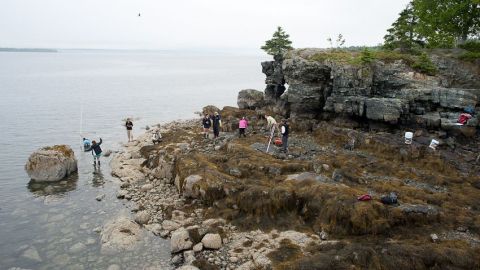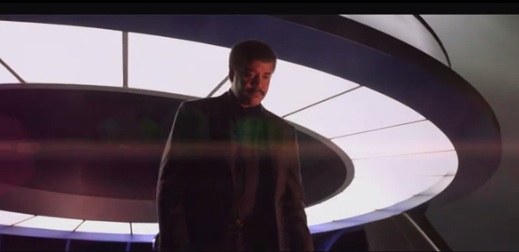In the World of Ideas, Place Matters

Where do ideas that change the world come from? Why do some ideas take hold while others fall by the wayside? Powerful ideas emerge from particular places— places both figurative and literal. Figuratively, people need to find common ground before they can come together to find new solutions to difficult problems. Literally—well, some places just seem to provide inspiration. They attract creative people who feel more productive and more open to new possibilities when they are there and, as a result, innovation happens.
Even in this time of advancing technology and expanding cyberspace, where we are makes a difference. We don’t think or exist in empty space; we need nourishment from the earth, literally, to live and create. Breaking away from day-to-day routines and interacting in places that bring people together and that feed our minds helps us understand our relationship with our environment, our “human ecology”, and leads us on a more sustainable path. And somehow, when we’re connected to a place, the ideas we generate have more sticking power.
Mount Desert Island is a place where people connect. It’s the largest island off the Maine coast, about 100 square miles, a five-hour drive from Boston, and accessible to the mainland by a short bridge. It’s home to Acadia National Park and offers the unbeatable combination of both mountains and sea. In the 19th century, artists from the Hudson River School discovered the island’s dramatic landscapes and made them famous. The exceptional geology and varied coastline in turn attracted scientists at a time when “science” usually involved a lot of fieldwork and studying all kinds of organisms. City people, known as “rusticators,” followed, seeking adventure, cooler summers, and stimulating surroundings.
In the early 20th century, the island’s growing popularity concerned some wealthy rusticators, who worried about land speculation and development. That’s when George Dorr, John D. Rockefeller, Jr., and Harvard University president Charles W. Eliot started working together and conceived the “big idea” of a national park on Mount Desert Island. The park, ultimately named Acadia, was the first U.S. national park east of the Mississippi and the first to be created with donations of private land.
Over the past hundred years, Mount Desert Island has continued to attract scientists and other big thinkers. George Dorr, one of the founders of Acadia, felt that the appreciation of nature and its study should go hand in hand. He was instrumental in establishing many cultural and scientific organizations including the Mount Desert Island Biological Laboratory (MDIBL), with its focus on studying diverse animal models to understand and improve human and environmental health, and the Jackson Laboratory in Bar Harbor, one of the earliest institutions to focus on using mouse models and genetics to understand disease.
Dorr, Rockefeller, and Eliot were successful in creating a culture dedicated to collaboration and learning that continues to thrive. Twenty-five years ago the College of the Atlantic was founded in Bar Harbor as the only college in the world focused on human ecology, the study of the relationship between humans and the environment. More recently a varied group of stakeholders came together to create and implement a conservation action plan to protect Frenchman Bay, the waters that surround Mount Desert Island. Scientists, shellfish harvesters, aquaculturists, and conservationists found a way to meet on common ground and agree on areas that would not be harvested, but set aside for habitat conservation. That kind of collaboration is no mean feat in this time of general distrust between the fishing industry and science, and the common assumption that progress can only be made with laws and regulations.
It’s wonderful to have discovered an almost-magical place like Mount Desert Island where people, ideas, and solutions flourish together, but clearly we need to bring this capacity for collaboration and problem solving to a new level if we are to solve our global environmental problems. We need scientists and environmentalists talking with business and government leaders and citizens; and each of us needs to pay more attention to nature and the places that inspire us. On Mount Desert Island, we’ll be broadening our vision with the Human and Environmental Sustainability Summit at MDIBL on August 9, 2013, and celebrating Acadia’s centennial in 2016. We look forward to generating ideas that stick and forming collaborations that make real change happen, in Maine and all around this planet, our larger island home.





